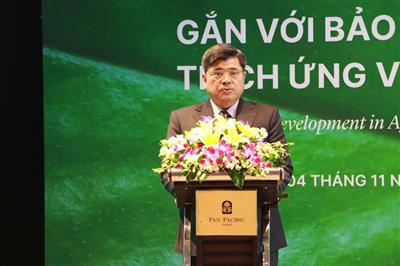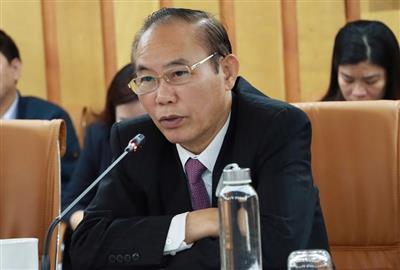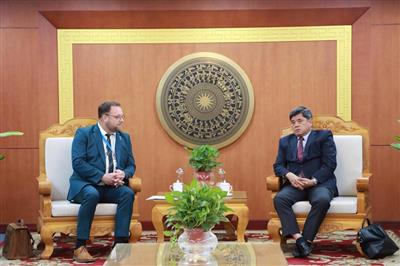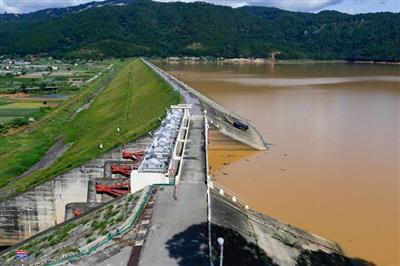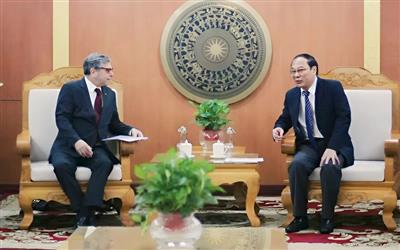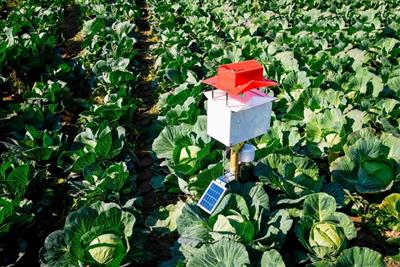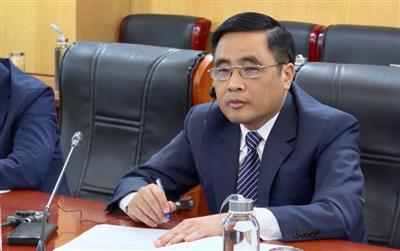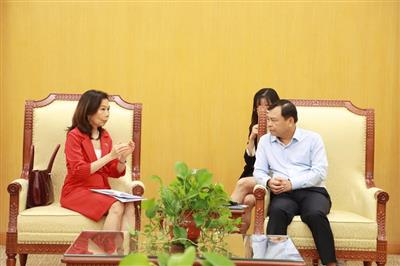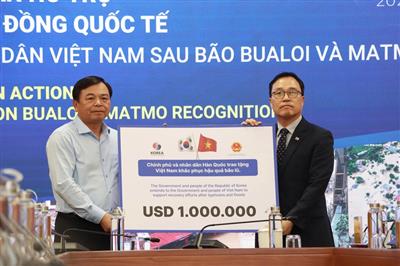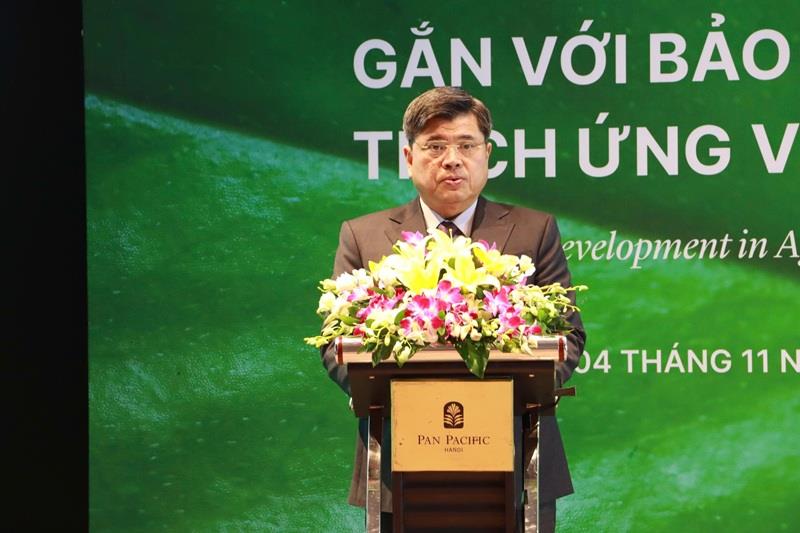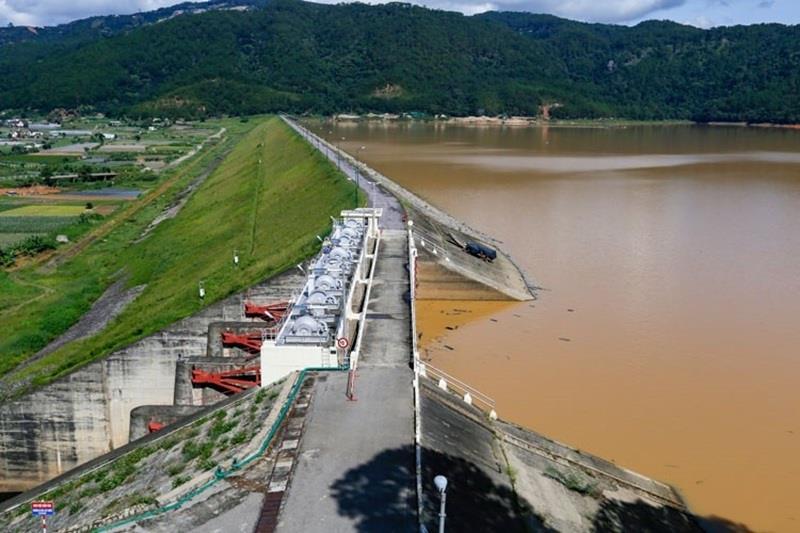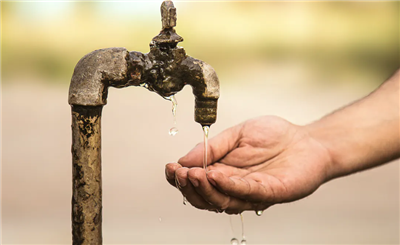
Deputy Minister Nguyen Hoang Hiep: “Accurate assessment, proper planning, and swift assistance”
24/09/2025TN&MTThis was affirmed by Deputy Minister Nguyen Hoang Hiep during a meeting with Ms. Pauline Tamesis, UN Resident Coordinator in Vietnam, on September 24 at the Ministry of Agriculture and Environment (MAE) headquarters. Lessons learned from Typhoon Yagi and recent natural disasters underscore the importance of accurate situation assessment, proper planning, and timely assistance. This also serves as a basis for strengthening cooperation between Vietnam and the United Nations to enhance disaster response capacity amid complex climate change developments.
Reflecting on lessons from Typhoon Yagi
At the meeting, UN Resident Coordinator Ms. Pauline Tamesis emphasized that Typhoon Yagi and recent natural disasters have provided valuable experiences for disaster response, prevention, and risk reduction efforts.

Deputy Minister Nguyen Hoang Hiep meets UN Resident Coordinator Pauline Tamesis at MAE on September 24 to discuss lessons from Typhoon Yagi and enhancing disaster response cooperation
Ms. Tamesis highlighted the effective information flow during Typhoon Yagi as a notable achievement. The timely provision of updates by the Vietnam Disaster Management Authority (VDDMA), combined with situation reports from partners, enabled both domestic and international organizations to quickly grasp the situation and implement assistance aligned with on-the-ground needs.
She also noted the effectiveness of the 5W framework (Who, What, Where, When, for Whom). "The contributions of sectoral groups to the 5W matrix helped identify response gaps, avoid duplication, and ensure more efficient resource allocation," she emphasized.
On Vietnam's side, Deputy Minister Nguyen Hoang Hiep affirmed, "The lessons from Typhoon Yagi remain invaluable, with the most important being accurate assessment, proper planning, and swift assistance. In disaster relief, we must answer the questions: What, Where, When, and Who." He added that following Typhoon Yagi, when reviewing 2024, the Prime Minister requested the development of a handbook—not only to summarize but also to pass on experiences to future generations. The Deputy Minister also noted that the Prime Minister particularly emphasized the support from UN organizations, viewing this as a mutual learning process between Vietnam and international partners.

Deputy Minister Nguyen Hoang Hiep highlights the challenges of heavy rains in northern mountainous regions and praises timely international support, including UNICEF, during Typhoon No. 3 in Dien Bien and Lai Chau
Deputy Minister Nguyen Hoang Hiep also pointed out that the greatest current challenge is the impact of heavy rains in the northern mountainous regions, leading to isolation. This situation requires proactive measures regarding food, clean water, and sanitation when areas become inaccessible. "In the recent Typhoon No. 3 in Dien Bien and Lai Chau, the timely support from partners, especially UNICEF with clean water, food, and disinfectants, demonstrated the essential role of international coordination," he stated.
UN Resident Coordinator Ms. Pauline Tamesis commended the leadership and coordination role of the Vietnamese Government and VDDMA. "The Government has demonstrated strong leadership in setting priorities based on the actual situation and needs. This has enabled international partners, including the United Nations and the Disaster Risk Reduction Partnership Group (DRRP), to adjust support activities promptly, reducing overlap and omissions," she affirmed.
Reflecting on the experience of Typhoon Yagi, she also highlighted the importance of institutionalizing the information management system, particularly the 5W framework, to ensure regular updates and establish it as a standard tool in emergency response coordination.
Enhancing proactive disaster response
Both sides agreed on the need to enhance proactivity in the face of unpredictable climate change developments. The United Nations is developing a new contingency plan based on disaster scenarios for the next decade, with particular focus on central Vietnam and flash flood risks following storms. Deputy Minister Nguyen Hoang Hiep also proposed that the Government and partners explore establishing a national disaster relief warehouse system and streamline procedures to ensure that emergency aid reaches people as quickly as possible.

UN Resident Coordinator Pauline Tamesis affirms UN support for training in priority localities to ensure sustainable, long-term disaster response in Vietnam
He emphasized that, in addition to immediate relief, long-term solutions should be prioritized to ensure livelihoods, clean water safety, food, and environmental sanitation when communities are isolated by disasters.
Regarding capacity building for grassroots teams, Deputy Minister Nguyen Hoang Hiep noted that after the elimination of the district level, disaster prevention at the commune level has become crucial but still faces many limitations. He proposed that the United Nations and partners collaborate to develop materials, organize training, and provide direct support to this team, especially village heads—key figures in evacuation and ensuring people's safety.
UN Resident Coordinator Ms. Pauline Tamesis affirmed that the United Nations is ready to support Vietnam in training efforts, focusing on priority localities, and connecting with relevant agencies to ensure the sustainability and long-term impact of the program.
The experiences gained from Typhoon Yagi, along with the new cooperation direction between Vietnam and the United Nations, demonstrate that effective disaster response in the context of climate change hinges on enhancing proactivity, preparing scenarios in advance, and strengthening capacity from the grassroots level. Close coordination between the Government, localities, and the international community will be a crucial foundation to minimize risks, protect people's lives, and build a sustainable disaster prevention system, leaving no one behind.
Khanh Linh - Ngoc Huyen




